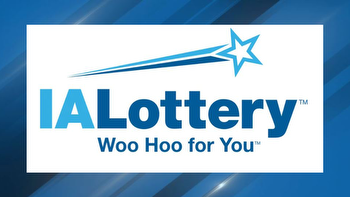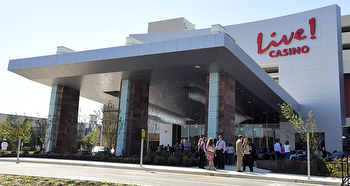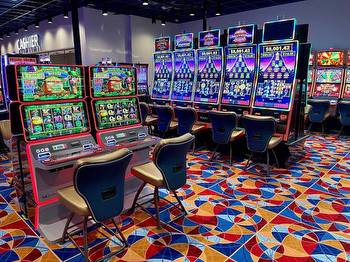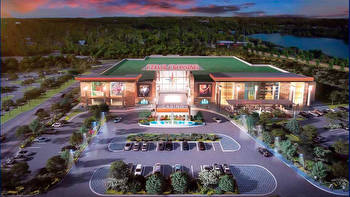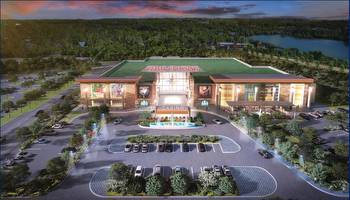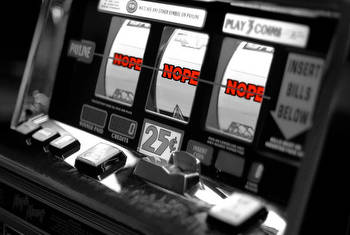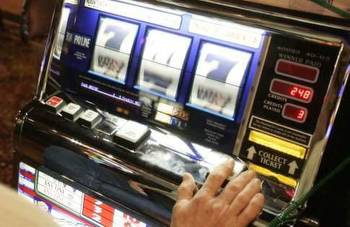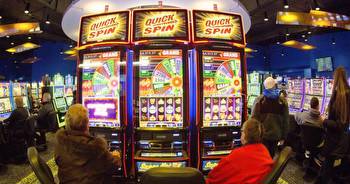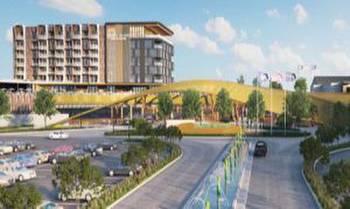Another Linn County gambling vote, but gaming has changed

Given all the talk this week about a Linn County gambling referendum this fall, I tried this past week to get in touch with Jonathan Swain. He’s president of Peninsula Pacific Entertainment, the casino company leading a group of investors that holds all the cards when it comes to the possibility of a casino, someday, in Cedar Rapids.
The Cedar Rapids Development Group has an agreement with the city through 2029 to be its exclusive casino developer, should one ever develop. You might recall the Iowa Racing and Gaming Commission has turned down four state license requests for Cedar Rapids casino projects in 2014 and 2017.
To keep hope alive, voters have to renew the county’s 2013 referendum this November. Just when I overcame my addiction to writing about gambling, they’re pulling me back in.
But Swain is a busy guy so I got his PR firm instead. They relayed a question to him via text, namely, what’s changed since 2017 to give him any optimism about Cedar Rapids landing an elusive casino license.
His one word answer, “Nebraska.”
It’s true, Iowa’s lucrative casino monopoly on our western border is ending. Ho-Chunk, Inc., the economic development arm of the Winnebago Tribe, has plans to build three casinos in Nebraska with an investment of more than $300 million.
Ho-Chunk is building casinos in Lincoln, Omaha and South Sioux City. The projects, announced late last year, will be built simultaneously and could open in late 2022 or early 2023. They promise to put a sizable dent in the estimated $500 million Nebraskans gamble at Iowa casinos.
With that kind of revenue loss, it’s possible state regulators and politicians might be interested in new sources of gaming bucks from, say, a casino in the state’s second-largest city.
Although it’s also possible existing casinos might fight new intrastate competition even harder to protect what they have. “Cannibalization!” will be their battle cry.
Nebraska is not all that’s changed.
Iowa now has legalized in-person and online sports betting. Why drive to a big casino resort when you can enjoy high-stakes action on your smartphone from your easy chair? Market trends moving gamblers away from what have been lovingly called big “cornfield casinos,” evident the last time Cedar Rapids sought a license, have only accelerated with online options.
People want to gamble at home or close to home at, say, a casino in the middle of Iowa’s second-largest city.
We also have a new cast of characters on the Racing and Gaming Commission.
There’s Julie Andres, who owns Mau Marine with her sister in Okoboji, where Andres is a city council member. And Lance Horbach, a former Republican state representative from Tama who owns an insurance agency.
Also on the commission is Daryl Olson of Audubon, a managing partner with AMVC Management Systems, the nation’s 10th largest pork producer. The company oversees 149,000 sows and 1.6 million market hogs in 10 states. He donated a $10,800 flight to Gov. Kim Reynolds in 2020.
New to the board is Mark Campbell, a Webster County supervisor from Fort Dodge. Reynolds has yet to name a nominee to fill the commission’s fifth open seat.
Do these changes make a Cedar Rapids casino more or less likely? Difficult to tell. But I’d say a facility with a hog production/nautical theme inside a fort might have a chance. Just spit-balling.
Another potential wrinkle is how the pandemic and derecho raised the profile of nonprofit organizations who helped struggling Iowans stay afloat and recover. And that highlights the inequities of how Iowa hands out gambling revenues.
Counties with casinos can lavish millions of dollars in grants on local organizations. In 2018 and 2019 Riverside Casino revenues in Washington County funded more than $8 million in grants. Revenue for local grants from the Isle Casino Hotel in Waterloo topped $4.5 million in 2019.
Nongaming counties, such as Linn, get far less, even though Riverside and Isle executives claimed in 2014 and 2017 their operations would be decimated without Linn County gamblers. Linn County’s share of gambling revenue through a statewide formula was $492,000 in 2020.
Online sports betting from anywhere in Iowa compounds the unfairness of allowing home counties of 19 casinos to keep the big pot and flip a chip to non-casino counties. The Legislature should address the issue but likely won’t. But maybe a casino in, say, Iowa’s second largest city, would at least allow Linn County gamblers to fund Linn County organizations.
So does any of this mean Cedar Rapids is getting a casino? No. Even if the referendum passes this fall, it could be a while before the development group floats a new plan. Its agreement with the city remains in place for several years. But investors clearly want to take another shot.
And the landscape is changing. Gambling is changing. You can’t win if you don’t play, I heard someplace. And I can quit writing about gambling anytime I want. I swear.
(319) 398-8262; todd.dorman@thegazette.com










